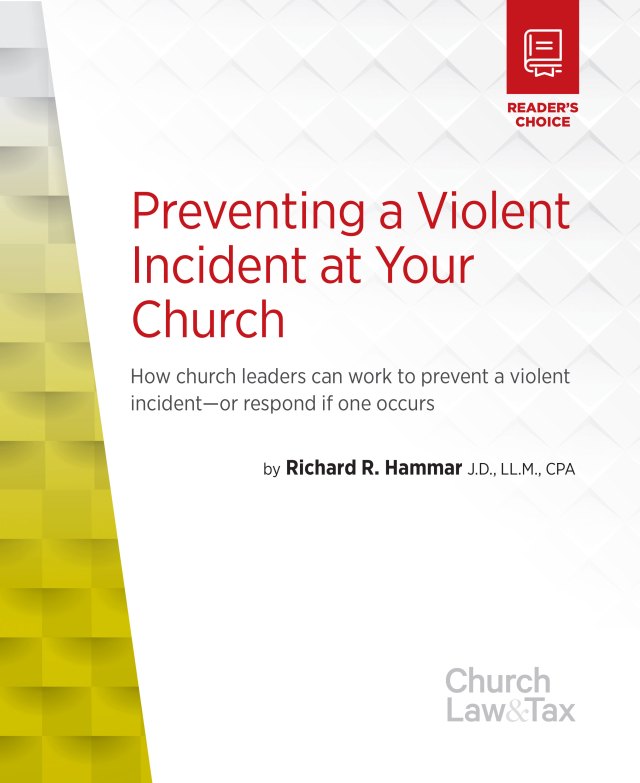Does a church have a legal right to keep people from accessing its property or attending services? For example, let’s say that a church has an encounter with a disruptive person, and asks him not to return. What if he shows up again the next week? How should ushers respond?
This issue has been addressed by a number of courts.
Generally, the courts have been sympathetic to attempts by churches to deny access to disruptive individuals. To illustrate, one court ruled that a church could bar a disruptive individual from entering its premises. It noted that the person had been clearly informed and understood that his privilege to attend the church had been revoked. The court rejected the person’s claim that a church is a public place that cannot deny access to anyone.
A church, like any property owner, has the right to determine who can access its premises.
Let me mention another case in which a court ruled that a church could prevent a disruptive person from accessing its property. The person had disrupted church services, and harassed members, in the past. A court issued an order prohibiting the person from coming within 200 yards of the church. This order was upheld by a state appeals court, which found it to be a reasonable limitation on socially unacceptable behavior. Such cases demonstrate that the civil courts will assist churches in keeping disruptive individuals away by issuing appropriate orders. This obviously is a last resort, but it is one that is available in dealing with persons who will not behave appropriately.
You can learn more about how to handle people who disrupt your services or pose a potential threat to the safety of your church members in Dealing with Dangerous People.





